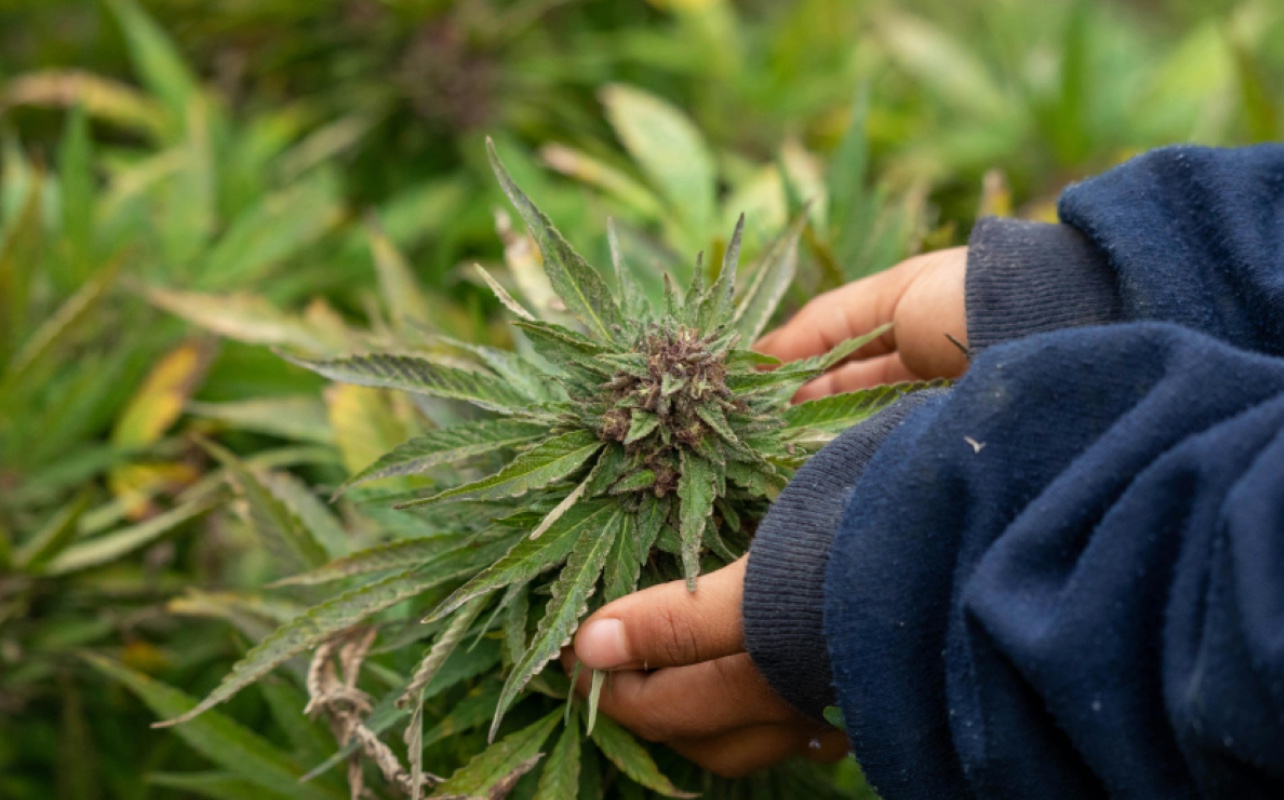
November 13, 2025
The bill has led to a ban against intoxicating hemp products, with some lawmakers on both aisle opposing the provision.
As the government officially reopens with the passing of a new funding bill, certain THC products are on the chopping block.
President Donald Trump signed the bill to reopen the government in the late hours of Nov. 12, following a necessary passing vote in the House. However, the legislation included a controversial provision, particularly impacting the growing cannabis industry.
According to Axios, the bill will re-criminalize some products containing THC, a drug found primarily in marijuana plants. While some senators opposed the criminalization, which was previously reversed in a 2018 farm bill, the legislation moved forward to Trump’s desk.
Initially, the farm bill provision detailed that products listed as hemp could contain a THC concentration above .3%, so long as it was not the delta-9 compound. However, conservative lawmakers felt the cannabis producers took advantage of the regulation, creating the “intoxicating” yet legal drug consumption throughout the nation.
“Following the enactment of the 2018 farm bill, the cannabis industry began producing certain cannabis products that contain less than 0.3% delta-9 THC but a total THC concentration that exceeds 0.3%. Some of these products may be intoxicating to the user,” the bill’s summary says.
Now, the loophole once upheld in the farm bill no longer exists. A federal ban is now in place against the selling of “intoxicating” THC products, even when sold in low doses.
Gas stations, convenience stores, and online shops must stop allowing customers to purchase the products. These offerings also range from edible products such as pills, food, and drinks to lotions.
Opposing lawmakers deem the bill a blow to the hemp farmers and business owners within the billion-dollar cannabis sector. The cannabis market was estimated at around $38.50 billion in 2024, with growth expected, as confirmed by Grand View Research.
“The bill, as it now stands, overrides the regulatory frameworks of several states, cancels the collective decisions of hemp consumers and destroys the livelihoods of hemp farmers,” shared Senator Rand Paul on the Senate floor ahead of the Nov. 11 vote.
This news would also stifle the already underrepresented Black cannabis entrepreneurs. A 2017 survey detailed by the Congressional Black Caucus confirmed that only 4.7% of entrepreneurs within the cannabis market identified as Black.
While Congress may continue its fight to amend the bill, hemp products may experience a rapid decline as the ban takes place.
RELATED CONTENT: Allen Iverson Introduces ‘IVERSON’ Craft THC Soda

